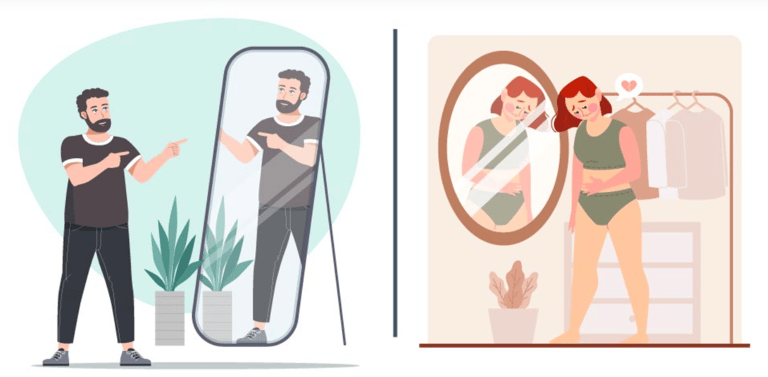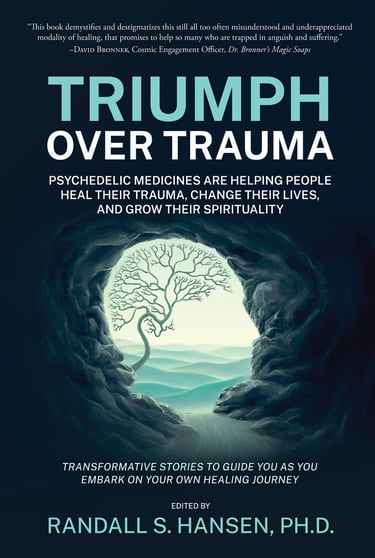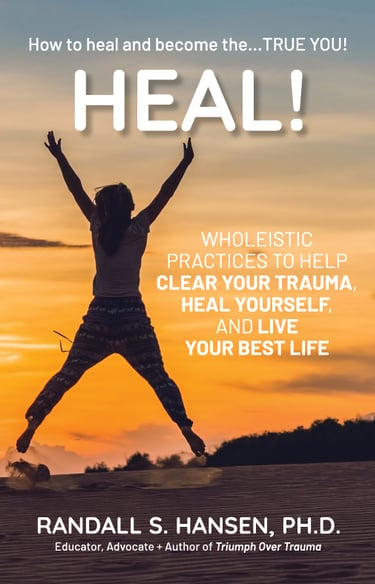Body Image Wellness: Five Strategies For Liking Your Body
We have a big problem. It adversely affects millions and millions of us daily -- both men and women. We go to dramatic lengths, at times, to deal with the issue.
I am speaking of body image -- and the negative stuff we say to ourselves about our bodies, including:
I hate how I look
I wish I had a flatter stomach
I hate the way my belly looks
I wish I had thinner thighs
I hate the lines around my eyes
I wish I was more toned
I hate the extra flab I carry around
I wish I had a better smile/teeth
I hate the look/color of my eyes/nose/lips
I wish people saw me for who I am... and not my body.
The list could be the entire article; you get the idea.
Hi. I'm Ran, and for many years I had a body image problem... something men (especially) rarely discuss.
What is body image? It's simply the way we see our physical self -- our body -- and the thoughts, feelings, and actions we have associated with how we see it. A healthy image is one where the person sees themself as more than just a physical appearance, but also has full body acceptance. An unhealthy body image is when we are hyper-focused on our physical appearance -- and are unhappy with one or more elements.
If you are one of the many of us struggling with our perception of our bodies, now is the time to face it, embrace it, and take action to conquer it.
The Body Image Crisis
Anecdotally, we know we are in crisis, but amazingly -- especially in the U.S. -- there have not been large studies of children or adults regarding body image. From previous research, we do know that 3 in 5 adolescents have reported having some body dissatisfaction. We also know body image affects both men and women. Finally, we know that almost two-thirds of teenagers and just under half of all adults believe in the idea of an "ideal body."
Furthermore, the result of the pandemic seems to have fostered an increase in body image issues, with some theorizing that more isolation combined with more time spent on social media and a lack of physical activity led to increased dissatisfaction with our bodies.
Negative Outcomes From Body Image Fixation
People who get overly fixated on issues with their bodies tend to have several other issues as a result of their negative body image (and related trauma), including:
Depression
Anxiety
Low self-esteem
Increased suicidal ideation
Eating disorders (anorexia, bulimia)
Body dysmorphia disorder (BDD)
Muscle dysmorphia
Interpersonal problems
Alcohol and drug use disorders
Social isolation
Perfectionistic tendencies
Repetitive negative thoughts
Five Strategies For Liking Your Body
We face an uphill battle in dealing with our body issues because of the culture that seems to showcase young and airbrushed models, influencers, celebrities instead of real people. And it's not just businesses doing the damage, but also so many people on social media sharing "fake/curated" images.
That said, we can win and conquer these negative images with these five strategies.
1. Get Out of Your Mind and Into Your Body. We give too much power to thoughts and feelings. Instead, we need to embrace what we love about our bodies. Consider affirmations: I love that my body is strong enough to hike in the woods for miles; ride my bike all around town; lift and play with my children; work in the garden. Change the focus to all the good your body does for you.
2. Embrace Your Body. I used to hate mirrors, especially when I was working out. Now, I enjoy mirrors. In fact, in our newly built master bathroom, we have so many mirrors that it's almost a funhouse; well, technically our house is always a fun house, but that's another article. Every time I walk into the bathroom, I smile at myself; most of the time the smiles are genuine. It's also time to go to your closet and donate any "thin" or "future-thin" clothing.
3. Determine and Eliminate Triggers. You may already know what they are, but if not, the first step here is identifying what causes the shame, anger, sadness, etc. The second step is finding a way to reduce the power of the things that trigger you. You might try avoiding or reducing contact with certain people in your life, as well as drastically reducing the time spent on social media to avoid comparison syndrome. Another option is to reframe the situation and move any negative focus away from you.
4. Change Your Assumptions/Thinking. Just because we hate some aspect of our body today does not mean we have to keep hating it forever; all we need to do is change our thinking. If we really sit and contemplate the issue, most of us can pinpoint the thing that led us down the wrong path. Thus, once it has been identified, we can discredit or revise the previous thinking and take a more enlightened and "mature" approach to our body and aging. We also need to change our perspective from how our body looks to overall wellness/health/strength.
5. Make Healthy Lifestyle Changes. We know that the plastic surgery and cosmetics industries are billion-dollar enterprises that can often go way across the line of normal -- so this step is about NOT doing anything crazy to your body or spending thousands of dollars on fillers, enhancements, and lifts or tucks. Instead, we should focus on making the rest of our lives healthy, turning our attention to nutrition (and what we eat), to exercise (moderate), and wellness (reducing stress, increasing happiness)
Final Thoughts About Body Image
If you're struggling with body image issues, please find help -- through using these five steps, sharing with a significant other, or working with a counselor. Remember to take a long break from "comparison syndrome" -- comparing yourself to others; you are unique -- so stop comparing yourself to others. Keep this mantra in your head: Healthy bodies come in all shapes and sizes.
As you move along the spectrum to a healthier body image, celebrate each win. Take pride in yourself for who you are and what you are accomplishing.
Note: We may have to go much deeper to heal some of our negative body images, especially if they have been with us for years. Research shows that some negative body image issues are a result of trauma connected with bullying, sexual abuse, or other childhood trauma. With trauma, you may need to go into therapy (talk or psychedelic) to clear it before you can tackle your body issue completely.
As many of my readers know, I am a big proponent of psychedelics, especially in dealing with issues involving the ego; experiencing a strong macrodose journey with ego dissolution may go a big way in addressing multiple issues we have with ourselves. Learn more about psychedelics in this other article of mine: Five Things to Consider Before Jumping into Healing Through Plant Medicines.
By the way, in case you were worried about me, I now actually enjoy looking in the mirror -- thanks to a lot of work on my part and the help of a wonderfully supportive partner. My body is not perfect, but neither is the rest of me -- so we all coexist!
Additional Body Image Resources


Dr. Randall Hansen is an advocate, educator, mentor, ethicist, and thought-leader... helping the world heal from past trauma. He is founder and CEO of EmpoweringSites.com, a network of empowering and transformative Websites, including EmpoweringAdvice.com.
He is the author of the groundbreaking Triumph Over Trauma: Psychedelic Medicines are Helping People Heal Their Trauma, Change Their Lives, and Grow Their Spirituality and the well-received HEAL! Wholeistic Practices to Help Clear Your Trauma, Heal Yourself, and Live Your Best Life.
Dr. Hansen's focus and advocacy center around true healing ... healing that results in being able to live an authentic life filled with peace, joy, love. Learn more by visiting his personal Website, RandallSHansen.com. You can also check out Dr. Randall Hansen on LinkedIn.






